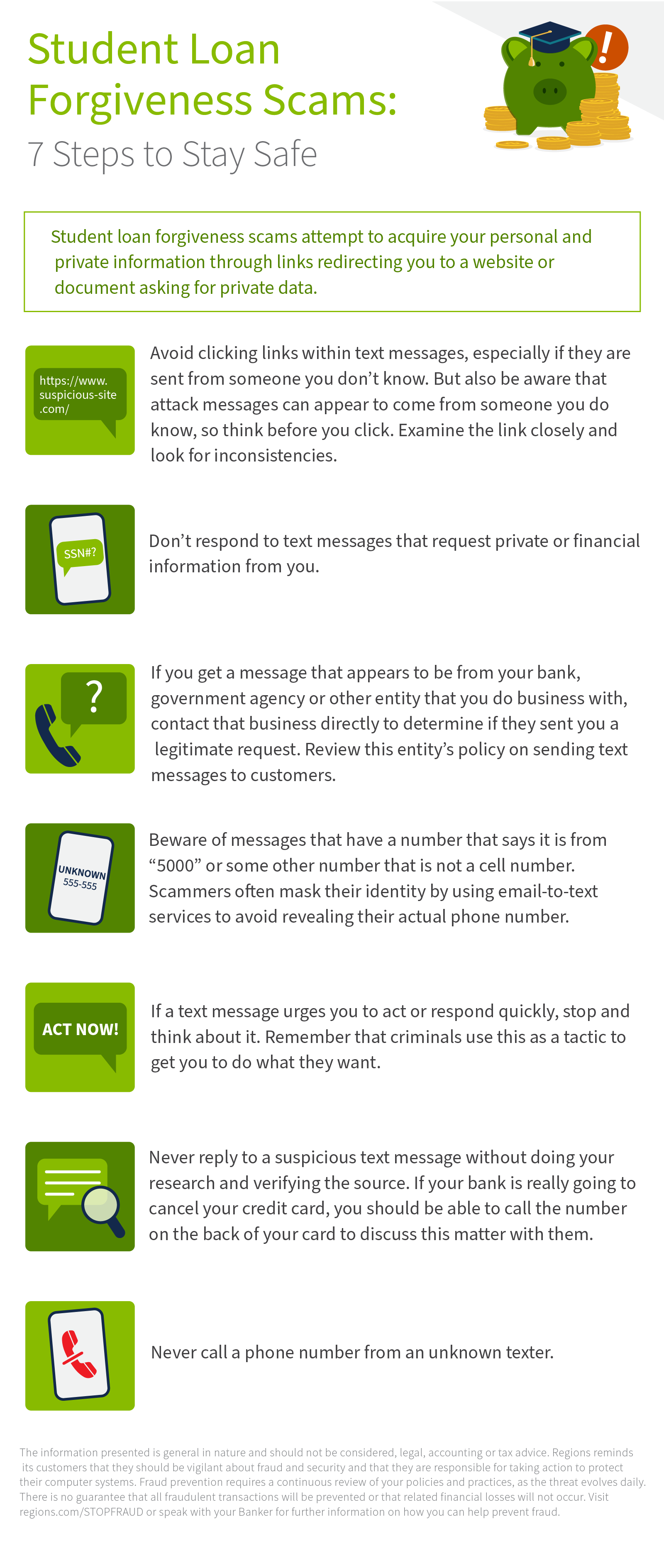The White House recently announced an initiative to help Americans with student-loan debt. Under the new plan, those with a U.S. government-backed loan who make less than $125,000 a year are eligible for up to $10,000 in loan forgiveness. In addition, individuals can also receive up to $20,000 forgiveness if they hold a Pell Grant.
Congrats! That’s great news for young borrowers.
But it’s also fertile ground for criminals. According to the CFPB, student loan forgiveness scams are on the rise.
“As was the case with PPP loans and the other pandemic-assistance programs, fraudsters will take advantage of this environment,” said Jeff Taylor, head of Commercial Fraud Forensics at Regions Bank.
Taylor said those with student loans can expect to see an increase in text messages, phone calls and emails from so-called trusted agencies that want to “help” borrowers obtain the forgiveness you deserve.
“Since the rules have not been clearly defined, it creates the confusion factor that assists the success of the fraud,” Taylor added. “Fraudsters leverage the absence of clarity around the rules to create their own and incorporate them into the explanation of the scam.”
Student loan forgiveness scams attempt to acquire your personal and private information through links redirecting you to a website or document asking for private data.
“This is one of the oldest scams around, but it is still extremely successful,” Taylor added. “They may also ask for a credit card number or bank account information in order to process your credit and refund. Fraudsters continue to enhance their scams to increase believability and acceptance.”
As with all the other text, phone and email scams, these important suggestions can help you stay safe:

Ask yourself: are the calls I’m getting about student loan forgiveness real? If they are not from a trusted source or a follow-up to an inquiry you made to your bank, probably not.
“Our focus at Regions is keeping our customers safe, and the best way to do that is to make everyone fraud aware,” Taylor said. “Student-loan fraud is their latest attempt, so protect yourself, your family and your assets.”
The information presented is general in nature and should not be considered, legal, accounting or tax advice. Regions reminds its customers that they should be vigilant about fraud and security and that they are responsible for taking action to protect their computer systems. Fraud prevention requires a continuous review of your policies and practices, as the threat evolves daily. There is no guarantee that all fraudulent transactions will be prevented or that related financial losses will not occur. Visit regions.com/STOPFRAUD or speak with your Banker for further information on how you can help prevent fraud.